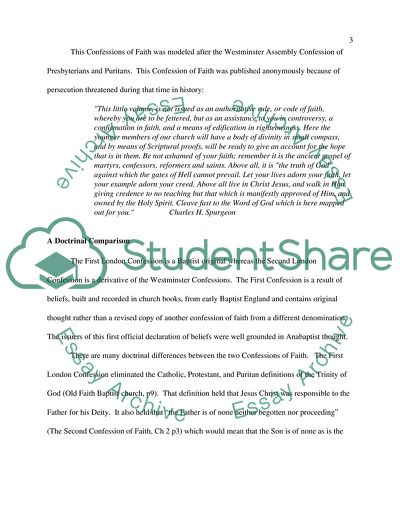Cite this document
(Comparison of Baptist Confessions Essay Example | Topics and Well Written Essays - 1250 words, n.d.)
Comparison of Baptist Confessions Essay Example | Topics and Well Written Essays - 1250 words. https://studentshare.org/religion-and-theology/1713100-confessions-paper
Comparison of Baptist Confessions Essay Example | Topics and Well Written Essays - 1250 words. https://studentshare.org/religion-and-theology/1713100-confessions-paper
(Comparison of Baptist Confessions Essay Example | Topics and Well Written Essays - 1250 Words)
Comparison of Baptist Confessions Essay Example | Topics and Well Written Essays - 1250 Words. https://studentshare.org/religion-and-theology/1713100-confessions-paper.
Comparison of Baptist Confessions Essay Example | Topics and Well Written Essays - 1250 Words. https://studentshare.org/religion-and-theology/1713100-confessions-paper.
“Comparison of Baptist Confessions Essay Example | Topics and Well Written Essays - 1250 Words”. https://studentshare.org/religion-and-theology/1713100-confessions-paper.


